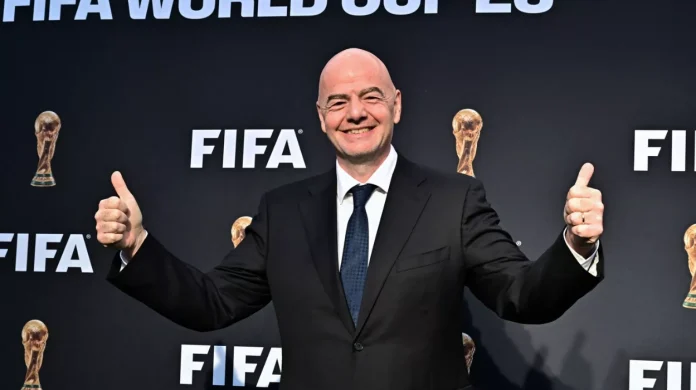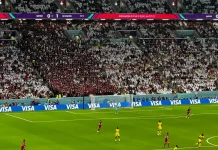The ticket sale system of the 2026 FIFA world cup, which officially opens sale in September 2025, has been criticized by world football communities due to its support of exclusivity by means of complex digital operations and escalating prices.
Even though FIFA pushes the initiative as a clear and scalable one, the format has the effect of restricting access to a significant portion of fans, particularly those that are low-income countries or otherwise lack access to elite financial instruments.
This tendency shows an increasing disresonance between the publicly proclaimed inclusivity of FIFA and the actual reality of its ticket distribution policy that breed significant concerns regarding equity and commercial interest and the fan experience.
Layered Complexity and Exclusive Early Access
The design of FIFA’s initial ticket sale prioritizes corporate interests and creates systemic hurdles for many prospective attendees.
Visa cardholder presale and FIFA ID requirement
Only Visa cardholders can access the first phase of ticketing, which runs from September 10 to 19, 2025, and requires registration through FIFA’s official platform for a randomized lottery. While FIFA argues this system ensures fairness, it structurally excludes those without a Visa card or digital access. The emphasis on brand partnerships restricts entry before the general public even has a chance to participate.
Digital dependency further compounds these barriers. Fans with fast internet, multiple devices, and prior experience with online lotteries are far more likely to succeed. As one fan described the process, it felt like “praying for a golden invitation” suggesting that success depends more on digital literacy and luck than passion or loyalty.
Ticket purchase limits and package complexity
FIFA caps purchases at four tickets per match and forty tickets per buyer across the tournament. Intended to prevent bulk-buying and black-market abuse, these limits unintentionally complicate purchases for families and friend groups. In some cases, fans resort to registering under different names or hiring third parties to navigate the lottery.
The variety of ticket types: single matches, team-specific passes, and full stadium access introduces further confusion. Hospitality packages, priced up to tens of thousands of dollars, offer premium access, separate entrances, and exclusive services. These packages have been criticized as a commercialization of fan experience that privileges the ultra-wealthy and foreign tourists over lifelong supporters.
Implications for Global Football Communities
The rising financial and technical thresholds associated with attending the World Cup alienate many core fan demographics.
Marginalization of lower-income fans
The cost of tickets begins with group-stage matches and may rise up to more than 6,700 for the final. This pricing structure is prohibitive to the fans of the lower-income nations particularly in areas such as Latin America, Africa and some parts of Asia. The barriers act as a death sentence in many cases because of the expense of international travel, accommodation, and requirement of visa.
These realities discredit FIFA as being cheap. Amateurs and working-class enthusiasts are being marginalized and the access to the events is coming through economic access. The resultant effect is a tournament experience of the richer demographics which is a dilution of the community-based culture of traditional World Cup crowds.
Corporate and commercial priorities over fan experience
The fact that Visa is at the heart of the ticket operation is something of a wider trend in FIFA favoring its commercial relationships. Closure, focus on advertisement, and sale stages arranged in accordance with a brand consider corporate interests instead of fair fan involvement.
The trend is further supported by hospitality packages which turn the interaction with fans into a graded scale where closeness to the pitch is related to the purchasing power. The fans are thereby divided into economic classes, air-conditioned suites, VIPs and the ordinary fans who find it hard to get in raffles. This compromises the mutual, democratic zeitgeist that has traditionally characterized world football events.
Rising Discontent and Calls for Reform
The opposition to FIFA and its existing model is becoming more and more pronounced by fan communities and advocacy groups who note disparities and demand systemic change.
Fan backlash and advocacy
Frustration is visible across social media and supporter forums. The term “golden ticket” has become shorthand for the scarcity and randomness of the process. Many users criticize FIFA for turning participation into a lottery controlled by corporate infrastructure.
Advocacy groups urge FIFA to simplify the structure, expand acceptable payment methods, and ensure a portion of tickets are reserved for local and underrepresented fans. There’s also pressure to introduce universal anti-scalping measures, rather than relying on uneven host-nation policies.
This person has recently spoken on the issues faced by fans amid FIFA’s ticket sales approach:
We live in a world where it costs 450$ to entitle yourself to a World Cup ticket, up to round of 16. No ticket included, just the right to buy one. ‘Working class sport’ pic.twitter.com/9UcH934OW8
— Adam (@adamsg1878) September 6, 2025
Their observations emphasize that ordinary fans feel increasingly alienated, viewing the sales process as a barrier rather than an invitation. The sentiment is growing that the World Cup has shifted from being a public celebration to a premium event designed for corporate entertainment.
FIFA’s response and future outlook
FIFA defends its plan relying on the logistical needs of the 2026 world cup that will host 48 teams and 104 matches spread over 16 cities. The group holds that ticket classifications and resales systems help to ensure transparency, and demands that scalping be well regulated on licensed sites.
Critics however develop an argument that such statements do not provide the solution to the most fundamental problem, that of affordability and access. Although FIFA might be acting within its own procedural barometers, the overall impression would be one of exclusion particularly in the host nations such as the U.S. and Canada where resale markets are largely unregulated and prices can potentially take off.
The existing approach to ticket sales of the 2026 world cup shows a rising conflict between the cultural importance of the event and the changing commercial truth of the event. With FIFA moving more towards corporate sponsorship and premium packaging, the common fans, the traditional backbone of the football culture, move to the periphery. This model will either be sustainable or require a reform, depending on how much pressure fans build, the policy decisions that host nations will take, and also whether FIFA will be willing to redefine its vision of what access and celebration really entails at an international level.













